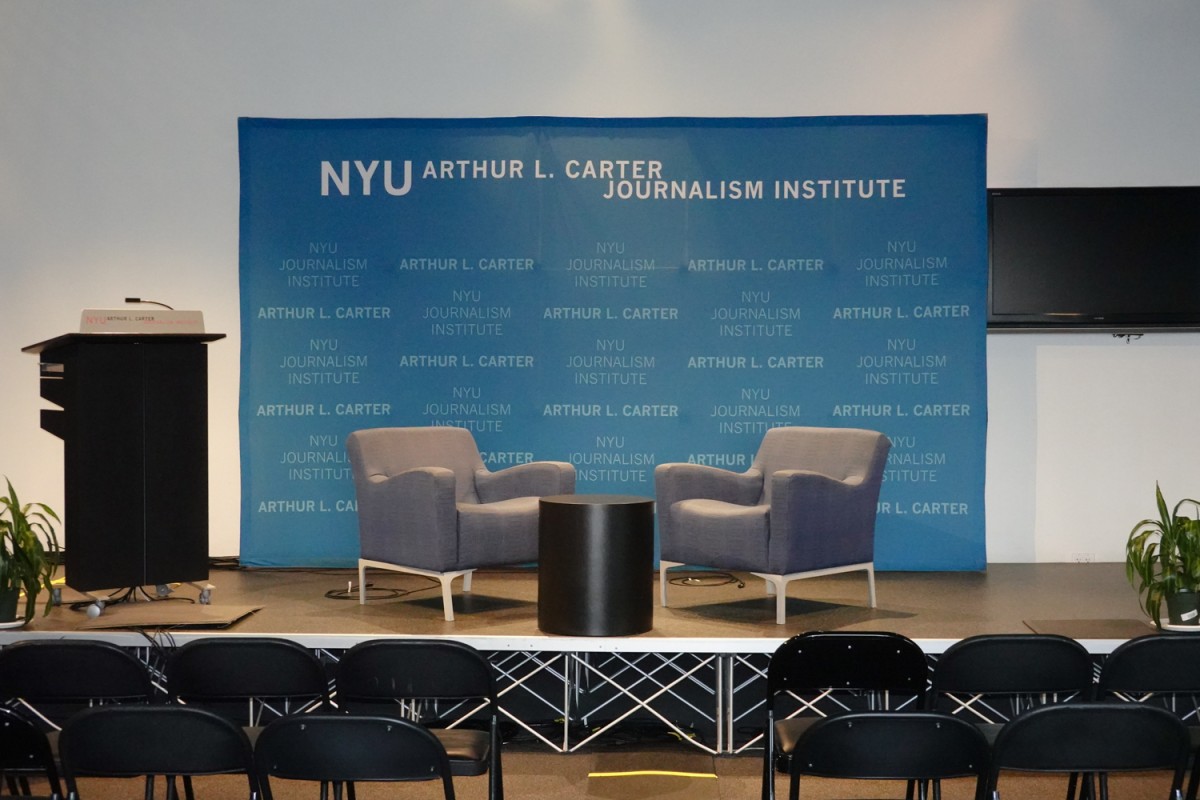Students and faculty in the Arthur L. Carter Journalism Institute criticized the department’s silence on journalist deaths in the Israel-Hamas war at a meeting with administrators on Friday. The meeting comes after students and alumni called on administrators to release a statement acknowledging “violations of human rights and press freedom” during the conflict in a recent letter.
At the meeting, students — who all requested to remain anonymous due to safety concerns — argued that the department has been ignoring what the Committee to Protect Journalists, a journalists’ rights nonprofit, is calling “the deadliest month for journalists.”
“We’re dancing around some ideologies and substance, and because of that, we’re actually not addressing stuff we need to address,” one student said at the meeting. “We need to keep confronting these ideas, and find ways to facilitate that.”
At least 50 journalists have died since the beginning of the Israel-Hamas war, according to the CPJ. As the number of journalist casualties continues to grow, the Israeli government has proposed “new emergency regulations” that would allow it to take away broadcast equipment and stop media broadcasts if an outlet is found to harm national security.
“If I’m killed while reporting, how would the department react?” one student at the meeting said. “This is something where the department should choose a side, and that is the side of the journalists.”
The conflict began on Oct. 7, when the Palestinian militant group Hamas launched an attack on nearby Israeli towns, killing about 1,200 civilians and taking over 200 hostage in the Gaza Strip. The Israeli military has since initiated a ground invasion of the region, and has killed more than 13,000 Palestinians so far, according to the Gaza Health Ministry.
A faculty member who attended the meeting — who also requested to remain anonymous due to safety concerns — announced the journalism department will hold weekly meetings starting today to discuss universities’ responses to the Israel-Hamas war. In the discussion, faculty members said they are restricted from addressing the war on behalf of the department, as individual departments within NYU’s schools cannot issue statements.
“We cannot do our jobs as journalists or as educators without having precisely the kind of conversation which we are inviting,” one faculty member said. “One in which we are able to agree through disagreeing.”
The students’ letter to the administration cited several panel discussions the department held on the Russia-Ukraine war last year, and called for similar attention geared toward the ongoing violence in Gaza, particularly concerning press freedom. Students also suggested adjustments to the curriculum, and more opportunities to discuss current events, including weekly readings or designated class discussions.
“It feels insufficient to just discuss theories of journalism and not discuss what’s happening right in front of our eyes, knowing that we’re all consuming it,” one student said at the discussion. “It feels as though the institute as a whole has been pushing it off.”
Contact Dharma Niles at [email protected].


























































































































































